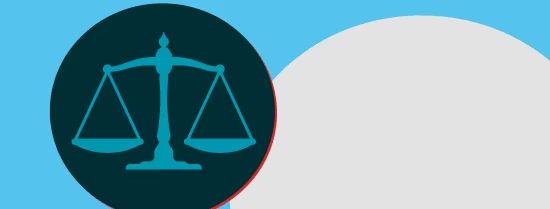In celebration of #SocialJusticeWeek at ISS, we sat down with Professor Thea Hilhorst to talk about her personal connection to social justice in relation to her latest project on humanitarian governance and accountability.
It’s #SocialJusticeWeek at ISS! We’re getting into conversation with staff and students to find out what social justice means to them. Join us as we explore new ideas every day of the week!
Four new and exciting research projects have kicked off within our Global Development & Social Justice research programme. We spoke to Thea Hilhorst, professor of humanitarian studies, about her latest project on humanitarian governance and accountability in the rapidly changing, risky and unstable contexts of humanitarian crises.
Can you tell us more about your latest project?
I’ve just started on a new programme funded by the European Research Council (ERC) called humanitarian governance (HUM-GOV). It focuses on people who are affected by crisis, and hence are getting or are eligible for humanitarian assistance. Very often, these people don’t have much of a say about the type of assistance and/or the way it is being provided. The HUM-GOV project aims to amplify the voices and influence of crisis-affected populations within humanitarian governance, while advancing and promoting accountability and advocacy.
What does ‘Social Justice’ mean to you, on a personal level?
Social justice should be embedded in the systems, rules, regulations, markets, and trade relations we have globally. Social justice concerns future generations.
If you look at how we deal with our planet, that is social justice at a systemic level.
But we must observe this from the lens of who gets to be heard and who has access to participate in the discussions that matter. Social justice has everything to do with overcoming social inequalities, not only in economic terms, but also in terms of who can speak and who has influence.
I find it important to embed social justice in my own environment and in the relations I have too. For example, you can do research with the best intentions, but if your methodologies and interactions are not consistent with ideas of social justice, that is not okay. So I try to see social justice as multidimensional, both at a systemic level, in direct work relations and also in the personal environment and the interactions we have.
“Social justice aims to overcome social inequalities not only in economic terms, but particularly in terms of who can speak and who has influence.”
How does the theme of social justice fit into your research project?
When we provide assistance to people who live in critical contexts worldwide, because of political collapse, conflict and/or disaster the aid relationships tend to be hierarchical. The classic idea is that agencies that are usually based in the global North fly to the countries where these problems are, in order to hand out services to the affected people. This is problematic on many levels.
The HUM-GOV project focuses on how the affected communities find their voice and make sure that aid is accountable. The study will contribute to the way humanitarian governance is understood and expand on the spaces and strategies that have opened for reform ‘from below’. I think that's very closely related to social justice because irrespective of whether they receive the aid that they actually want or not, it amplifies the voices and influence of marginalized communities and crisis-affected populations in humanitarian governance. So whereas humanitarian action is about social justice, it is nonetheless important to make it more inclusive by bringing the aid recipients into the conversation.
Can you tell us more about the ’from below’ approach of your research and how you aim to include more participatory and inclusive methods, respectful of local research capacities?
The issue of ethics in humanitarian action is very important. Humanitarian action has classically followed the principles of humanity, impartiality and independence. These principles have a very profound and universal meaning but now, realities are changing. The numbers of people worldwide whose lives are endangered and are rendered destitute by conflict, disaster or political collapse is growing. This is partly in relation to climate change as well. Humanitarian actors find it increasingly difficult to define the scope of their actions and identify who is, and who is not, eligible for humanitarian assistance.
That then brings me to the question of who is humanity? Are we looking at people in the same way? There are now evolving discussions about whether the humanitarian principles must be reinvigorated or whether we have alternatives around the concepts of solidarity and care. I want to further explore what that means. That is why I incorporated ethics in the project. I want to be consistent with the idea of working with a bottom-up approach so the project itself is going to be participatory in nature.
“Very often, people think it's not possible to do participatory research in conflict affected areas… I challenge that notion with this project”.
Many people are aware of what it means to do participatory research. But interestingly very often when it comes to conflict-affected areas, people think it's not possible to do participatory forms of research either because they think there are no institutions to work with, or because they think those communities are too divided to do participatory research. I challenge that notion with this project! I really want to go for collaborations with institutions in the countries where the research takes place, work with researchers from those countries, and most importantly, try to understand the boundaries and the scope for participatory research in crisis affected areas.
- Professor
- More information
The Humanitarian Governance (HUM-GOV) project is financed by the European Research Council (ERC) under the European Union’s Horizon 2020 research and innovation programme (grant agreement No 884139). It has a special focus on how civil society actors and crisis-affected people shape humanitarian governance by using accountability and advocacy.
- Related links
- Interested in more bitesize ISS Research? Visit the Research InSightS page

